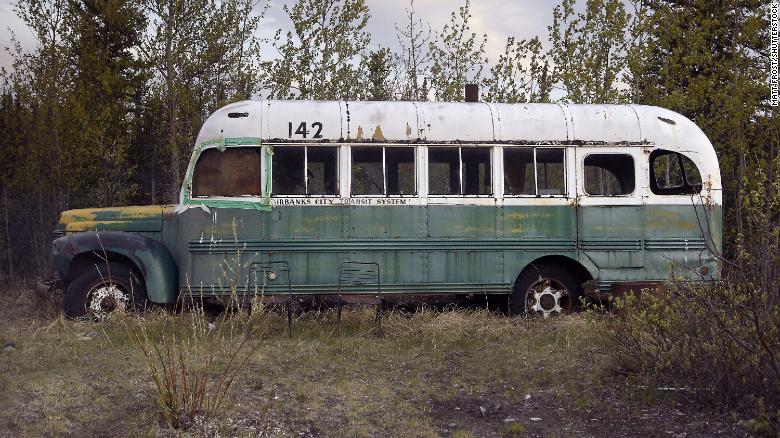 |
| Fairbanks City bus, Stampede Trail, Alaska, where Christopher McCandless starved to death in 1992. |
A recent email from The Atlantic explains how, in 1857, Henry Wadsworth Longfellow, Ralph Waldo Emerson, and James Russell Lowell sat down for dinner (Harriet Beecher Stowe wouldn't go because alcohol was being served), and the iconic magazine was born. The Atlantic "would make politics, literature, and the arts its chief concerns".
For a long time I have been fascinated by these very things, but since the beginnings of the twenty-first century, I have become somewhat pessimistic about the prospects for humanity.
Art and literature, fine; but politics? For a political scientist to be jaded at politics, things must be really bad. Oh woe is me. Turns out this is a First World Problem.
The first indicator came via Scott Pape, the Barefoot Investor. I like Pape's newsletters. He tells people straight:
Old Lady: "Sir, we can't afford our McMansion, what can we do?"
Barefoot Investor: "Sell it and move into a smaller house you can afford, moron!"
This evening I watched Sean Penn's 2007 movie Into the Wild (based on the non-fiction book by Jon Krakaeur). This was no Hollywood sap story, and finding it on Netflix was a bonus (I had it sitting in my inbox as a "must watch" movie that Google had informed me about, no doubt because I recently read and blogged about Rolf Potts' book Vagabonding).
As "Alexander Supertramp" travels throughout North America as a rejection of modern materialism, it had me thinking about my tiff with politics. And I was thinking about how the more things change, the more things stay the same.
As I read historical literature, the same old patterns keep repeating. Willa Cather said it best in O Pioneers:
...there are only two or three human stories, and they go on repeating themselves as fiercely as if they had never happened before...
Fairbanks Bus 142 (pictured above), where McCandless was found starved to death, has become a pilgrimage site since the book and the movie. This is creating its own problems, not to mention some rather tacky re-enactments.
But pilgrims do what pilgrims do, and nothing much has changed since Ibn Battutah's time. Even Virgil was bemoaning the loss of the pastoral life that didn't exist for most people way back when.
The reaction to McCandless' plight provides an apt metaphor for contemporary politics. In the words of the book's author, Jon Krakaeur:
I’ve received thousands of letters from people who admire McCandless for his rejection of conformity and materialism in order to discover what was authentic and what was not, to test himself, to experience the raw throb of life without a safety net. But I’ve also received plenty of mail from people who think he was an idiot who came to grief because he was arrogant, woefully unprepared, mentally unbalanced, and possibly suicidal.
What does it all mean? Different things to different people. Some sick of experts telling them how to be, others sick of populism undoing all that is good for others.
None of this is new. It is the same old story. And being jaded is a First World Problem. Although it may still be end of empire, it probably won't happen before my time is up.
So what is there to be jaded about? For this, I return to the ancient wisdom of the Stoics, and the words of Marcus Aurelius:
You have power over your mind - not outside events. Realize this, and you will find strength.
I suppose I won't need to go on the wallaby to grapple with contemporary politics, after all. And what I find repulsive today will be the fascinating beginnings of post-truth politics in years to come. I don't need to go on a pilgrimage or recreate McCandless's photograph, maybe just somewhere in between.
Amazing what can happen to one after watching a movie that is un-Disneyfied. Shakespeare-esque is much better!
 Donate
Donate





